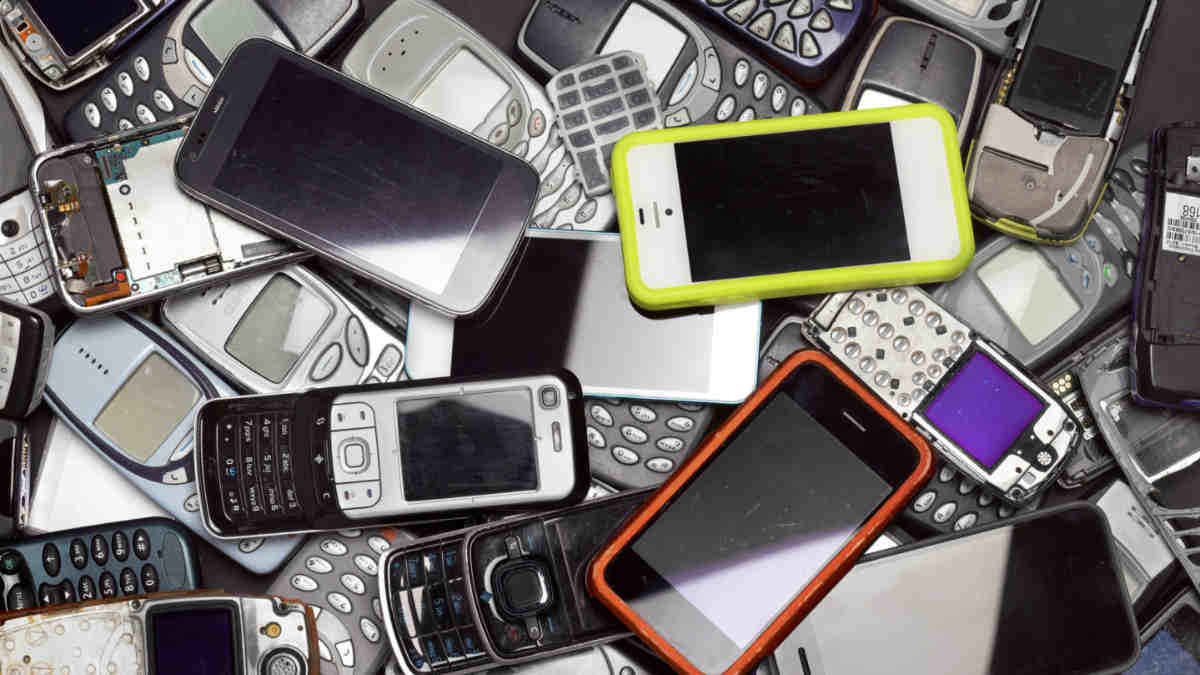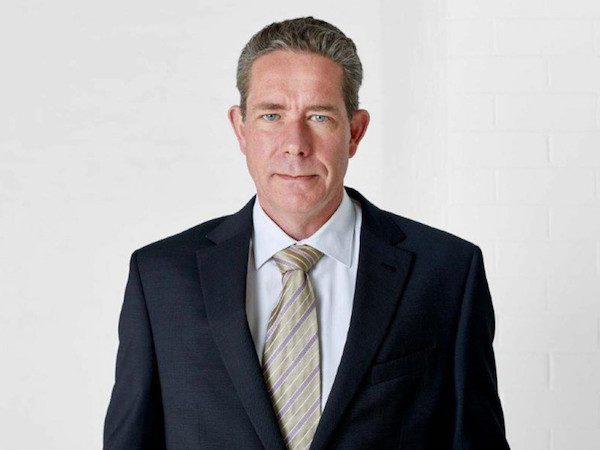The Ethical Investor: Here’s the multibillion ESG sector that will boom, according to Environmental Group’s Jason Dixon

Picture: Getty Image
- The Australian waste sector is set to become a multibillion dollar industry
- It’s a sector that’s about to grow rapidly due to recent legislation
- ASX-listed Environmental Group CEO Jason Dixon talks to Stockhead about its potential
Australia produces 74 million tonnes of waste per year, and only 60% is recycled.
Types of wastes being dumped include plastics, electronics, tyres, and industrial chemicals – amongst a host of other toxic stuff.
We used to export 7% of this waste overseas, particularly to China and other parts of Asia. In fact, some of the world’s biggest dumpsites created by the global waste trade are located in Indonesia, Pakistan and India.
But recently these countries have pushed back, forcing the federal government to pass the Recycling and Waste Reduction Act in 2020, and banning the export of unprocessed waste overseas.
The Act, which took effect on 1 January 2021, essentially puts a stop to the export of waste plastic, paper, glass and tyres.
The legislation gave the impetus for the industry to reconfigure local infrastructure to reprocess and re-manufacture recyclables onshore.
The true value of the industry is difficult to measure, but figures of anywhere between $3bn to $20bn per annum are often cited in the media.
One thing is for sure, the law will act as a catalyst that could accelerate the shift towards a ‘circular economy’ – where we move from a ‘take-make-dispose’ model of production, to a ‘reuse-repair-recycle’ model.
Ands according to experts, our waste industry will overtime evolve its focus from the basic waste reduction and recycling, into the more a value-added ‘waste to resource’ process. This will involve moving up the value chain, converting biomass waste into energy or fuel sources.
Interview with Environmental Group CEO, Jason Dixon
Stockhead reached out to waste tech entrepreneur and expert Jason Dixon, the CEO of ASX-listed The Environmental Group (ASX:EGL).
Dixon was previously a director and shareholder of Tox Free Solutions for almost a decade, before it was acquired by Cleanaway Waste Management (ASX:CWY) in 2018 for $831 million.

After the sale, Dixon retired but decided to come out two years later to head The Environmental Group, becoming its CEO in February 2021.
Since taking the helm, the share price of EGL has surged by almost 700%.
Environmental Group share price today:
Where’s Australia at in terms of waste recycling?
“Australia used to export all of our recyclables to China with huge levels of contamination,” Dixon told Stockhead.
“The Chinese had allowed us to send waste with 30% contaminants, but they subsequently banned that and said you can now only have 1% contaminants.
“So, we built a whole industry based on an appalling standard, and when the Chinese caught us out, the whole industry in Australia was barely capable of recycling to the new standard.
“We were doing a disgraceful thing, and now that we can’t recycle and export to those standards, guess what? We’re throwing them to a landfill.”
What happened after that?
“The federal government is now talking about ‘remade in Australia’, and there’s going to be thousands of new jobs and recycling,” Dixon said.
“There’s going to be billions of dollars in grants to upgrade recycling facilities in Australia, and get them to the same standards with places like Singapore.
“In Singapore, everything is waste to energy and we don’t even have that in Australia.
“So do I see that as a big fundamental shift going on right now? Absolutely.”
How big is the waste sector?
“We have the best environmental engineers in Australia at EGL, and they’re playing in a niche pool of boilers and gas turbines which are worth around $400 million,” Dixon said.
“But there’s an $18 billion sector sitting adjacent to us, which is the waste sector, that we’ve never entered.
“So we’re going to move the company’s focus to penetrating into the waste industry, and being part of that ESG solution.
“We’ve recently won a $49 million deal with Turmec, where we will provide our world leading recycling solution to construct Turmec’s waste plant.
“The plant which will be located in Brisbane and is scheduled for completion by June 2023, which will recycle construction and demolition waste from the Southeast Queensland market.
“The plant can recycle up to 475 tonnes per day and will enable diversion of up to 95% of all products processed from landfill, minimising the environmental impact.
“The high-quality product produced from the plant will be sold into the domestic market, and includes civil construction materials, metals for recycling, and solid fuel as part of the circular economy.”
What else is Environmental Group doing within the ESG space?
“EGL Water technology deals in removing PFAS molecules,” said Dixon.
“PFAS was primarily used in aircraft fire fighting as a fire retardant, however its use expanded into plastics and clothing prior to its detrimental impact on our environment being fully understood.
“What’s so special about PFAS is that it’s water resistant, heat resistant and oil resistant.
“In 2007 it was listed by the Stockholm convention as being a persistent organic pollutant. In other words, there’s nothing in the world known to mankind at the time that can break the molecule.
“Everywhere we put that molecule into the environment, it’s indestructible and it will be there forever. And then they did further studies on it, and found that it’s also carcinogenic, ie it causes cancer.
“So now we’ve put something that is indestructible to mankind throughout the environment, that causes cancer and a bio-accumulator in your fatty tissues.
“We worked for years and years on how to separate that molecule from the environment to get rid of it.
“We’ve now got a technology that could separate and remove regulated PFAS to below detection limits. At the highest concentrate trials, regulated PFAS was removed over 99.4% on the first processing run, with further trials ongoing.
“Our technology has considerable advantages against other PFAS removal technologies including being simpler, safer, more versatile and more cost effective.”
Other ESG news on the ASX this week
As reported by Stockhead’s green expert, Jessica Cummins:
Evolution Energy Minerals (ASX:EV1) has begun trading on the Frankfurt Stock Exchange under the code (FSE:P77).
The company plans to develop the Chilalo Graphite Project in Tanzania into a net zero carbon graphite mine, which EV1 anticipates will result in substantial investor interest from the increasingly regulated European continent
Magnis Energy Technologies (ASX:MNS) subsidiary Imperium3 New York (iM3NY) said work activities at its gigawatt scale lithium-ion battery manufacturing plant in Endicott, New York continue to make strong progress as it reaches the 67% completion mark.
The company says the plant will reach fully automated production by late June – when the completion rate will be in the vicinity of 80% once fully automated production begins.
Pilot Energy (ASX:PGY) and Triangle Energy (ASX:TEG) have reached agreement on the key principles to restructure the existing joint venture ownership arrangements for the Cliff Head Joint Venture (CHJV) and the proposed Cliff Head Carbon Capture and Storage Project (CH CCS Project).
Pilot has been undertaking feasibility studies into the potential for carbon capture and storage and blue hydrogen production focussed on the Cliff Head oil field, which have confirmed a significant CCS resource in WA-31-L.
The views, information, or opinions expressed in the interview in this article are solely those of the interviewee and do not represent the views of Stockhead.
Stockhead has not provided, endorsed or otherwise assumed responsibility for any financial product advice contained in this article.
Related Topics
UNLOCK INSIGHTS
Discover the untold stories of emerging ASX stocks.
Daily news and expert analysis, it's free to subscribe.
By proceeding, you confirm you understand that we handle personal information in accordance with our Privacy Policy.








